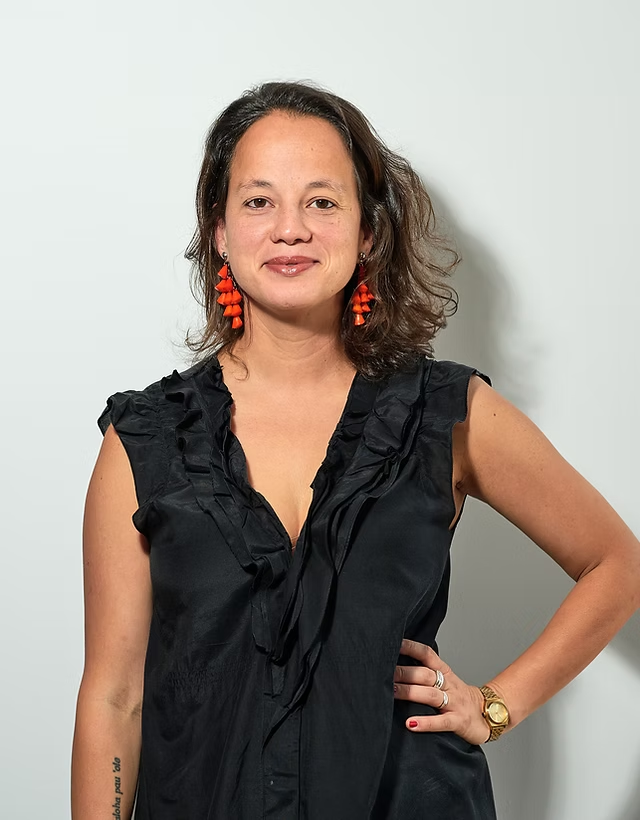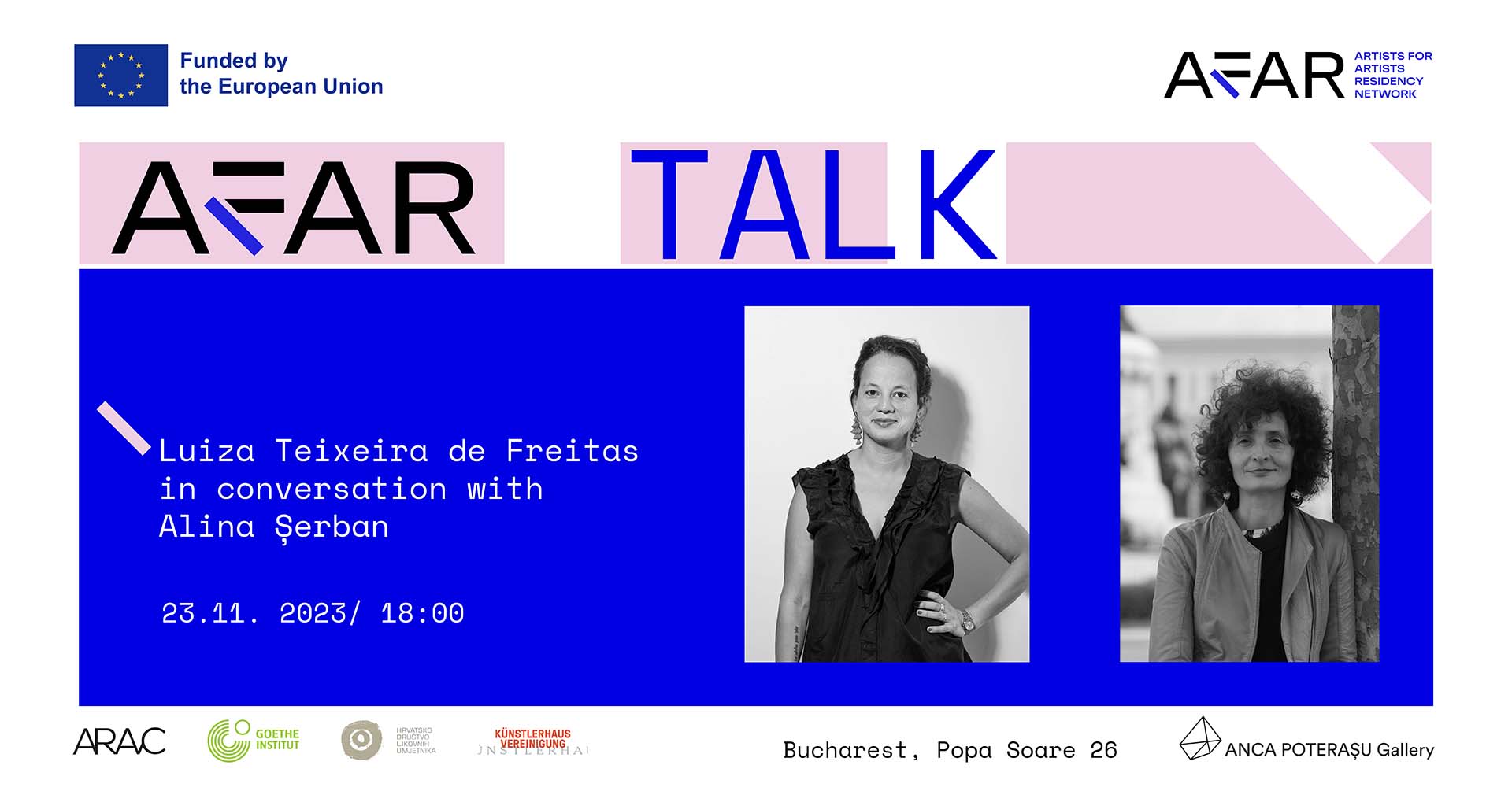
Luiza Teixeira de Freitas is an independent curator based in Lisbon. Among the various projects she is involved with, her curatorial work with private collections stands out, as well as her active relationship with independent publications and artist books, having launched her own publisher Taffimai in 2018. Although based in Portugal, she frequently works with projects in São Paulo, New York, London, Los Angeles and has also a strong connection with the Middle East. Luiza is a strategy consultant at the Delfina Foundation in London, on the Board of Directors of Bidoun, and also, President and Board member of Operação Nariz Vermelho, Portugal.
website:https://www.luizateixeiradefreitas.com/

Alina Șerban is art historian, cofounder of the Institute of the Present, Bucharest and founder of the publishing programme P+4 Publications. Her research focuses on topics dealing with the history of the exhibitions, the non-linear historiographies of post-war Eastern European art and its specific theoretical and social contexts of manifestations, oral histories and artistic archives. She was grant recipient of Igor Zabel Award for Culture & Theory (2022). Her recent projects include: the exhibition Performing 89. States of Disillusion (2023) and monograph Constantin Flondor. When Eye Touches Cloud (2021).
AFAR TALK. Luiza Teixeira de Freitas in conversation with Alina Șerban
Time to Care. A Conversation on the importance of art in health
Speakers: Luiza Teixeira de Freitas, Alina Șerban
November 23th, 18:00 – Anca Poterașu Gallery, Popa Soare 26
This talk is organized by ARAC in the framework of AFAR Network project.
Artists for Artists Residency Network (AFAR) is an EU co-funded project.The residency program aims to improve the mobility of contemporary visual artists and curators in Romania, Germany, Croatia, and Austria. The project is led by the Romanian Association for Contemporary Art (ARAC) with its three consortium partners – Goethe Institute Network, Croatian Association of Fine Artists, and Künstlerhaus Vienna.
About the project: The main topics are related to long-term cultural and social connections between local contexts, regarding cross-cutting themes of ecology and inclusion, specifically concerning wartime and economic migration of people. The project provides a range of new opportunities to art practitioners of all ages, across a variety of artistic mediums and backgrounds, with special regard to women in the arts and gender equality, to become involved in a series of artistic residencies, curatorial fellowships, artists& curators talks, and exhibitions where they can contribute and work together with their peers in creating self-sustainable models of mutual support and cooperation. This will be achieved through methods that include networking events, co-shared working spaces, case-study research of proposed models of residencies, knowledge-sharing between the partners in organizing residencies and public artist/curator talks, the development of an advocacy strategy for increased mobility of artists and curators in the consortium countries.
Views and opinions expressed are however those of the author(s) only and do not necessarily reflect those of the European Union or European Education and Culture Executive Agency (EACEA). Neither the European Union nor the granting authority can be held responsible for them.
We are delighted to invite you to the 2nd AFAR Talk held by the curator Luiza Teixeira de Freitas in conversation with the art historian Alina Șerban. It is about care and the intertwining between art and health – a recurring theme in the curatorial research of Luiza Teixeira de Freitas. In a light, melodic and loose way, our guest speaker will discuss how care can be portrayed, seen and given importance to, through art. Weaving through ideas and practices that allude to bridges and transformations, illness and healing, leisure – music, dance, literature and words, light and growth, nature and absence.
The importance of care cannot be undervalued, in the many aspects of life and human condition. It is the act of showing concern, consideration and thoughtfulness for someone or something and has an essential role in promoting well-being and building relationships, as well as working towards an adjusted society. The importance of recognizing people´s holistic needs, including their emotional, psychological and spiritual dimensions. Art serves as a tool to promote dignity, comfort and quality of life in difficult times, offering a meaningful and often transformative experience.
Knowing how to care and being willing to do so is a central value that shapes the lives of each of us in countless ways, and supports the ethical and moral values of which we are made of. Reminding us that care is a universal and timeless aspect of human experience, present in the intricate tapestry of relationships and that cultivating this idea in our personal and professional lives contributes to a more compassionate and harmonious world.

